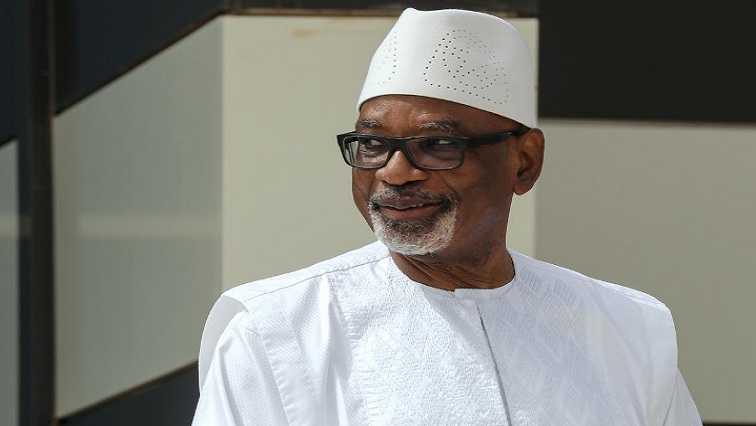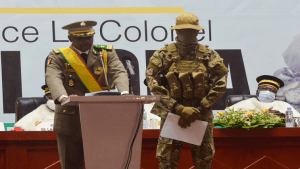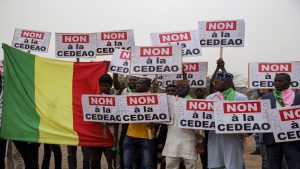Soldiers who ousted Mali’s president in a coup promised on Wednesday to oversee elections within a “reasonable” time and moved swiftly to hold talks with one of the West African nation’s most influential power brokers.
President Ibrahim Boubacar Keita resigned and dissolved parliament on Tuesday after the mutineers detained him at gunpoint, further rocking a country that is in the grip of a jihadist insurgency and plagued by civil unrest.
The mutineers denied reports of casualties from Tuesday’s unrest, but human rights group Amnesty International said it had documented the death of four people, while 15 more were wounded by bullets.
As investors ditched shares in Mali-based gold mining companies, the mood in the capital Bamako was calm throughout the day and junta leaders urged people and officials to return to life as normal.
They met on Wednesday afternoon with Mahmoud Dicko, a Salafist preacher who electrified protesters during anti-Keita demonstrations in recent weeks that drew tens of thousands of people, Dicko’s spokesperson said.
Dicko is a formidable political figure whose support was seen as crucial to Keita’s victory in the 2013 election before the preacher soured on him.
A spokesperson for the mutineers, calling themselves the National Committee for the Salvation of the People, said earlier that they had acted to prevent further “chaos, anarchy and insecurity”.
“We are not keen on power, but we are keen on the stability of the country, which will allow us to organise general elections … within a reasonable time limit,” Colonel Ismael Wague said on state television.
Ambassador Jerry Matjila on UNSC’s position regarding Mali coup:
A Malian security source identified three of the other junta leaders who appeared alongside Wague as Colonels Sadio Camara, Malick Diaw and Modibo Kone.
Wague described neighbouring armies, France’s anti-jihadist Barkhane force and the country’s UN peacekeeping mission as “partners for stability and restoring security”.
After being briefed on Mali’s crisis on Wednesday, the United Nations Security Council condemned the mutiny and urged the soldiers to release all government officials and return to their barracks. Earlier, French Foreign Minister Jean-Yves Le Drian called for Keita’s release and the restoration of civilian power.
In Paris, a French military source told Reuters the French army had submitted several options to President Emmanuel Macron.
Michael Shurkin, a former CIA officer now with the Rand Corporation, said the upheaval risked distracting Malian forces from their fight against jihadists linked to Al-Qaeda and Islamic State and that international partners faced a stark choice.
“The UN, EUTM (European Union Training Mission) and French have spent billions. What now? Is the answer just to walk away?” he said.
Mali has struggled to regain stability since a Tuareg uprising in 2012 that was hijacked by Islamist militants.
Keita, 75, was elected in 2013 following a coup the previous year, promising to bring peace and stability and fight corruption. He won a second five-year term in 2018.
Following months of protests against alleged corruption at least 14 people were killed in July in demonstrations called by the M5-RFP opposition coalition.
ECOWAS, which had sought to mediate between Keita and his opponents, said it planned to deploy a fresh mission to Mali to ensure a return to democracy and scheduled an extraordinary virtual session of heads of state for Thursday.
Anti-government protesters had poured into Bamako late on Tuesday to cheer the mutineers.
“I am against coups, but they become necessary if leaders are inflexible. What happened to IBK (Keita) was his own fault,” said 43-year-old motorcycle mechanic Namory Konate.
People and traffic circulated as normal on Wednesday, although many shops, banks and public buildings remained closed following looting.
Videos on social media had shown Malians running unchecked through luxury compounds in the city, including properties belonging to the justice minister and Keita’s son.
Gold mining firms, including the country’s largest miner Barrick Gold, said they were operating in Mali as usual and staff were safe, but traders sold shares because of the increased political risk.
African Union condemns Mali’s unconstitutional change of government:






